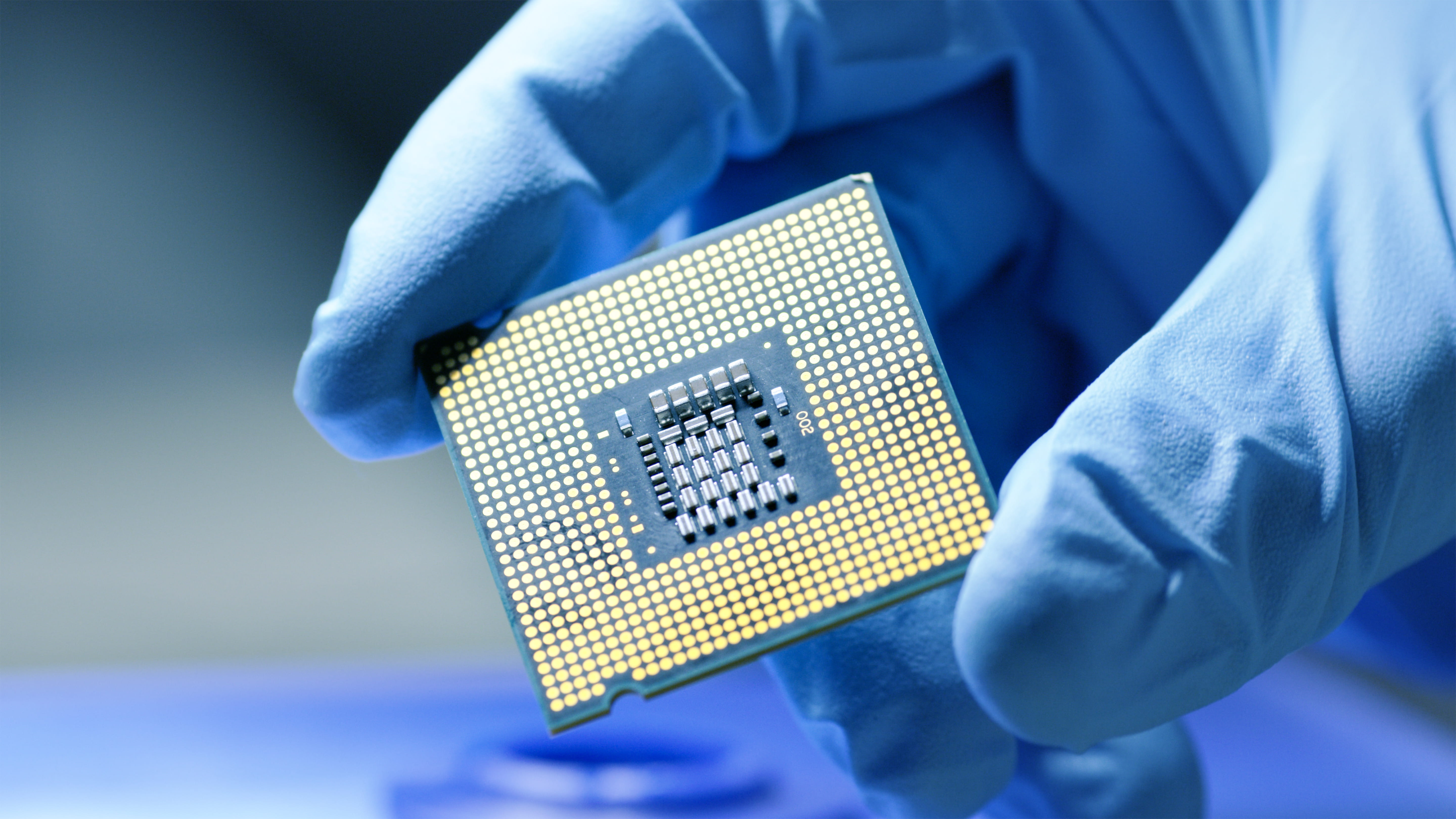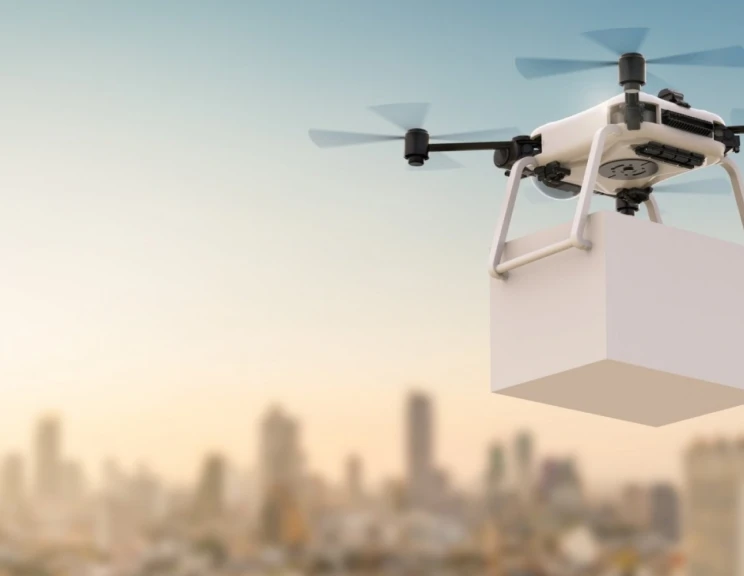
Microchip implants represent a technological advancement with vast potential in the healthcare industry. Despite the benefits, such as continuous monitoring and improved patient identification, data privacy and health safety concerns continue to hinder this technology’s widespread adoption.
The new sensation
The concept of implanting microchips into humans has been a topic of interest for several decades, but it wasn't until the early 2000s that this technology became a reality. In 2004, the first FDA-approved microchip implant for humans was introduced. While the current count of approximately 10,000 people worldwide with implanted microchips may seem relatively small [1], there are indications that the technology is on its path to widespread adoption.
This is particularly evident in countries like Sweden, with approximately 3,000 Swedes have chosen to have rice-sized microchips implanted beneath the skin between their thumbs and index fingers. Operating on Radio Frequency ID (RFID) technology, these chips can store personal information, credit card numbers, and medical records. Notably, employees of Three Square Market, a Wisconsin-based firm, voluntarily received chip implants for convenient vending machine payments and computer logins. Individuals can order do-it-yourself kits, complete with sterilization tools and an injection needle, or attend "implant parties" where professionals provide the chips to a group.
Microchip technology has continued to expand its reach into the United Kingdom. BioTeq, a prominent medical device manufacturer from Taiwan, successfully implanted approximately 250 individuals with microchips [2]. In a parallel development, the Japan Transhumanist Association, a general incorporated group dedicated to advancing transhumanism in Japan, recruited volunteers interested in receiving chip implants free of charge via Twitter. Astonishingly, over 20,000 people applied, and preparations were underway for 20 individuals who had been selected for the procedure. Furthermore, the Tokyo-based association's recent recruitment campaign has already garnered around 5,000 applications [3].
The novelty of healthcare
Microchip implants have opened doors for the healthcare industry, benefiting both patients and hospitals. These microchip implants can serve as a secure and unique identifier for patients, as they can streamline administrative processes, such as patient registration, identification, and record retrieval. Additionally, microchip implants can facilitate remote monitoring of vital signs, health conditions, and treatment adherence. This remote monitoring capability has the potential to enhance patient outcomes, reduce hospital admissions, and facilitate early detection of health issues. Indeed, the University of Pittsburgh Medical Center found that equipping patients with tablets and RPM equipment reduced the risk of hospital readmissions by 76% — and held patient satisfaction scores over 90% [4].
Implanted chips offer a convenient way to access critical medical information promptly. Particularly, these implants are valuable for individuals with conditions such as diabetes, cardiovascular disease, or Alzheimer's disease, as they can provide information about past antibiotics usage, allergies, current medications, and other related data during medical emergencies. By embedding a microchip under the skin, healthcare providers can easily access accurate and up-to-date medical records, reducing the chances of errors, and improving patient safety. Interestingly, the chip does not contain the entire medical history. Instead: a unique code or number can be utilized to retrieve the information from a secure database.
Moreover, microchip technology has the potential to enhance mobility for individuals with physically limiting health conditions like rheumatoid arthritis, multiple sclerosis, and motor neuron disease. For instance, people using wheelchairs can approach a door, and the microchip reader will unlock the door through a transponder, eliminating the need of using a key. BioTeq also explores microchip services for visually impaired individuals, aiming to create audible or touch-sensory signals in the home for improved accessibility and independence. For instance, to create audio signals, the microchip is designed to interface with compatible devices such as speakers or smart home systems. When triggered, it can generate spoken messages or sounds, or indicate the presence of specific objects within the home. For touch-sensory signals, the microchips can be equipped with tiny tactile components that respond to specific touch or pressure inputs. When a visually impaired individual interacts with touch-sensitive zones in the chip, the microchip can respond by providing distinct tactile sensations or vibrations.
Overcoming the data concerns
Nonetheless, it remains crucial to comprehend the potential dangers associated with implanting a microchip inside the human body. First of all, microchip implants raise concerns about human privacy as they have the potential to track individuals wherever they go, blurring the boundaries between physical and digital surveillance. This constant monitoring can lead to a loss of personal autonomy and raise questions about the extent of control external entities may have over an individual's movements and activities. Moreover, the cybersecurity risks associated with microchips also raise attention, given that sensitive information is stored within these systems. Specifically, healthcare institutions reported 145 data breaches in the first three months of 2023 [5].
Thus, to protect human privacy from threats associated with microchip implants, several measures can be implemented. Firstly, data collection should be minimized, ensuring that only necessary information is stored to reduce the risk of privacy breaches. Strong encryption algorithms should be employed to safeguard any transmitted or stored data, making it inaccessible to unauthorized parties. Furthermore, access control mechanisms, such as biometric authentication or unique identifiers, should be integrated into microchip implants to restrict access to authorized individuals only. Lastly, legal and ethical considerations should be taken into account, with clear regulations and guidelines set by governments and regulatory bodies to address privacy concerns, data protection, and individual rights. The 2023 HIPAA (Health Insurance Portability and Accountability Act) policies indicated that the penalties for non-compliance with these regulations include civil monetary penalties ranging from $100 to $50,000 per violation [6]. These measures collectively aim to mitigate privacy risks and uphold individual rights in the use of microchip technology.
Advancement is the only way forward
With regard to health safety concerns, a study by Fram et al. (2020) indicated that RFID chip implants may carry potential health risks such as adverse tissue reaction and incompatibility with some magnetic resonance imaging (MRI) technology [7]. Thus, advancements in RFID chip design may enable the development of smaller, more efficient, and highly integrated devices. Smaller implants reduce the potential for interference with surrounding tissues and minimize the risk of triggering adverse reactions. Additionally, integration can enhance the performance of the implants, making them more resistant to external electromagnetic interference (EMI).
Another issue with microchip implants is that electromagnetic radiation emitted by various electronic devices disrupts the implant's functionality. This sensitivity to EMI can cause malfunctions in the microchip implant when exposed to strong electromagnetic fields. Consequently, people dependent on medical devices such as pacemakers or defibrillators may encounter potential health hazards if EMI from external sources disrupts the functionality of their implanted chips. Therefore, future RFID chip implants are poised to utilize shielding mechanisms or advanced filtering techniques to maintain chip functionality, even in the presence of strong electromagnetic fields. Furthermore, ongoing research is needed to develop RFID chips that are engineered to coexist harmoniously with other critical medical devices, ensuring that electromagnetic interference does not compromise these technologies.
A long way to go
While microchip technologies offer the potential for enhanced healthcare outcomes and convenience, it is crucial to strike a careful balance. Prioritizing data privacy, security, and individuals' well-being is vital to maintaining patient trust. Besides, healthcare institutions should ensure the responsible and ethical use of microchip implants by healthcare providers. By addressing concerns, conducting thorough research, and implementing stringent safeguards, the healthcare industry can navigate this technology's potential while minimizing risks to individuals.































